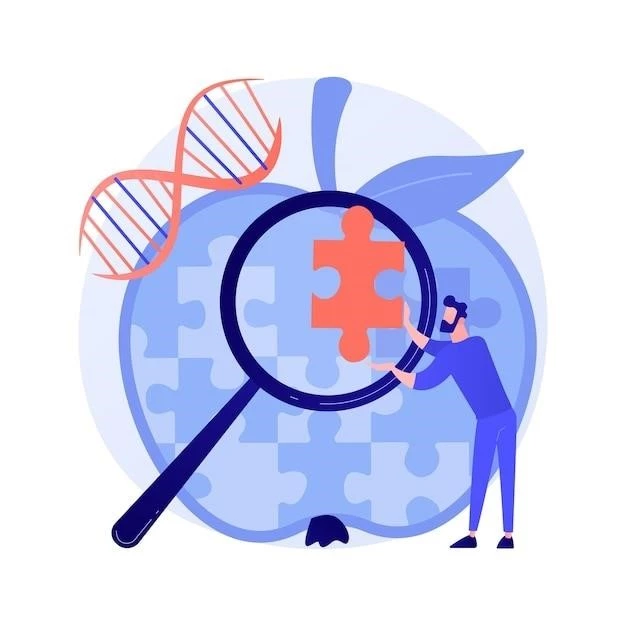Understanding Carney Syndrome
Carney Syndrome is a rare genetic disorder caused by mutations in genes responsible for regulating cell growth and division. The specific genetic mutations that lead to Carney Syndrome are still being studied, but it is believed that these mutations disrupt normal cell signaling pathways, leading to the development of tumors in various parts of the body. Carney Syndrome can be inherited in an autosomal dominant pattern, meaning that a person only needs one copy of the mutated gene to develop the syndrome. In some cases, Carney Syndrome may also occur sporadically, without any family history of the condition. Research suggests that Carney Syndrome is linked to abnormalities in the PRKAR1A gene, which plays a crucial role in controlling the activity of an enzyme called protein kinase A. Dysregulation of protein kinase A activity can contribute to the formation of tumors in endocrine glands and other tissues, characteristic of Carney Syndrome. While the exact causes of Carney Syndrome are complex and still under investigation, ongoing research aims to further elucidate the underlying genetic mechanisms and potential therapeutic targets for this rare condition. Carney Syndrome presents with a variety of symptoms, which can vary in severity and onset. Common symptoms include skin pigmentation changes such as lentigines and blue nevi, myxomas (tumors in the heart, skin, breast, or other tissues), and endocrine tumors affecting the pituitary, thyroid, and adrenal glands. Individuals with Carney Syndrome may also experience symptoms related to hormone overproduction, leading to conditions such as acromegaly, Cushing’s syndrome, and excessive thyroid hormone levels. Cardiac myxomas can cause symptoms like shortness of breath, fatigue, and palpitations. Other features of Carney Syndrome may include schwannomas (tumors of the peripheral nerves), testicular tumors in males, and psammomatous melanotic schwannoma. Some individuals may develop carney complex, which is characterized by the presence of multiple myxomas and spotty skin pigmentation. Given the multisystem nature of Carney Syndrome, a comprehensive evaluation by a medical geneticist and a multidisciplinary team is essential to assess and manage the diverse symptoms associated with this rare genetic disorder. Diagnosing Carney Syndrome involves a comprehensive evaluation that includes a detailed medical history, physical examination, and genetic testing to identify mutations in the PRKAR1A gene or other genes associated with the syndrome. Imaging studies such as echocardiograms, MRI scans, and CT scans may be used to detect myxomas or other tumors. Additionally, hormone levels in the blood may be evaluated to assess endocrine function and detect hormone-producing tumors. Skin biopsies of lentigines or myxomas can provide further diagnostic information. A multidisciplinary approach involving geneticists, endocrinologists, cardiologists, and other specialists is crucial in the accurate diagnosis and management of Carney Syndrome. Genetic counseling is recommended for individuals with Carney Syndrome and their families to understand the inheritance pattern, discuss reproductive options, and address any concerns related to the genetic aspects of the condition. Early diagnosis through genetic testing allows for timely monitoring and intervention to prevent complications associated with Carney Syndrome. The management of Carney Syndrome is highly individualized and focuses on addressing specific symptoms and complications associated with the condition. Treatment options may involve surgery to remove myxomas, endocrine tumors, or other growths that pose a risk to health or impair organ function. Hormone therapy, such as medications to regulate hormone levels in cases of hormone-producing tumors, may be utilized. Regular monitoring of cardiac function, hormone levels, and tumor growth through imaging studies is essential for early detection of any changes that may require intervention. For individuals with Carney Syndrome, a coordinated approach with medical specialists, including cardiologists, endocrinologists, oncologists, and genetic counselors, is crucial in developing a comprehensive treatment plan. Lifestyle modifications, such as healthy diet and exercise, may also play a role in managing symptoms and optimizing overall health. Ongoing research and clinical trials are exploring novel therapies and targeted treatments for Carney Syndrome to improve outcomes and quality of life for affected individuals. Participation in research studies may provide access to cutting-edge treatment options and contribute to advancements in understanding and treating this rare genetic disorder. The prognosis of Carney Syndrome varies depending on the individual’s symptoms, the extent of tumor involvement, and the presence of associated complications. While the condition is rare, early diagnosis and proactive management can help improve outcomes and quality of life. Individuals with Carney Syndrome may require lifelong monitoring and treatment to address the risk of tumor growth and recurrence. Regular follow-up with healthcare providers, including specialists familiar with the condition, is essential to detect and manage any potential complications promptly. With advances in medical knowledge and treatment options, the prognosis for individuals with Carney Syndrome has improved over time. Engaging in a collaborative care approach that includes genetic counseling, regular screenings, and timely intervention can enhance prognosis and promote long-term well-being. While Carney Syndrome may present challenges, individuals with the condition can lead fulfilling lives with appropriate medical care and support. Access to resources, information, and a supportive healthcare team can positively influence the prognosis and life expectancy of those affected by this rare genetic syndrome. Ongoing research into Carney Syndrome aims to deepen understanding of the genetic mechanisms underlying the condition and to identify potential targets for therapeutic interventions. Recent studies have focused on elucidating the specific gene mutations associated with Carney Syndrome, such as alterations in the PRKAR1A gene. Advancements in molecular genetics and imaging technologies have enabled researchers to explore the molecular pathways involved in tumor development in Carney Syndrome, paving the way for targeted treatment approaches. Clinical trials are underway to evaluate novel therapies that could improve outcomes and quality of life for individuals with this rare genetic disorder. Collaborative efforts among geneticists, oncologists, endocrinologists, and other specialists have facilitated the exchange of knowledge and data to advance research in Carney Syndrome. By sharing insights and findings, the scientific community can collectively work towards developing more effective diagnostic tools and treatment strategies for individuals affected by this complex condition. Stay updated on the latest developments in Carney Syndrome research to gain insights into emerging treatment options and potential breakthroughs that may impact the management of this rare genetic syndrome in the future. Carney Syndrome follows an autosomal dominant pattern of inheritance, meaning that a mutation in one copy of the gene is sufficient to cause the condition. The PRKAR1A gene mutation is commonly associated with Carney Syndrome, although other genetic factors may also play a role. Individuals with a parent who carries the mutated gene have a 50% chance of inheriting Carney Syndrome. In some cases, the condition can also arise sporadically without a family history of the syndrome, due to de novo mutations occurring during egg or sperm formation. Genetic testing can help identify mutations in the PRKAR1A gene or other genes linked to Carney Syndrome, enabling early diagnosis and appropriate management. Genetic counseling is crucial for individuals and families affected by Carney Syndrome to understand the inheritance pattern, assess risks, and make informed decisions. Further research into the genetic underpinnings of Carney Syndrome continues to expand knowledge of the condition’s inheritance patterns and associated genetic mutations. Understanding the genetic basis of Carney Syndrome is essential for developing personalized treatment strategies and improving outcomes for affected individuals. Carney Syndrome patients and their families can benefit from a range of support resources tailored to address the physical, emotional, and informational needs associated with the condition. Support groups, online forums, and patient advocacy organizations offer opportunities for individuals to connect with others facing similar challenges. Genetic counseling services provide essential guidance on inheritance patterns, family planning, and coping strategies. Social workers and mental health professionals can offer emotional support and assistance in navigating the complexities of living with Carney Syndrome. Educational materials, workshops, and webinars can help patients and caregivers stay informed on the latest developments in research, treatment options, and lifestyle management strategies. Access to reliable information empowers individuals to make informed decisions about their care and well-being. Healthcare providers, including geneticists, endocrinologists, and cardiologists, are valuable sources of support and information for Carney Syndrome patients, offering expertise in managing the condition and coordinating multidisciplinary care. Building a strong support network can enhance the quality of life and resilience of individuals affected by Carney Syndrome.
Causes of Carney Syndrome
Symptoms of Carney Syndrome
Diagnosis and Testing for Carney Syndrome
Treatment Options for Carney Syndrome
Prognosis and Life Expectancy of Carney Syndrome
Carney Syndrome Research Updates
Genetic Inheritance of Carney Syndrome
Support Resources for Carney Syndrome Patients
